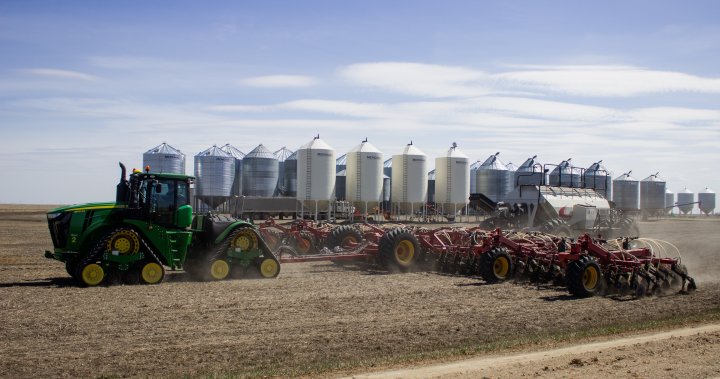Many farmers in Saskatchewan are already getting a head start on seeding for the season despite the final snowfall just melting recently. Todd Lewis, a farmer with 45 years of experience, recalls past dry conditions in the late 1980s and early 2000s, which have prepared him for the current situation. In 2024, the dry conditions have prompted many producers to begin seeding earlier than usual, with Lewis and his family starting to seed over 10,000 acres before May 1, their usual start date. Advances in technology over the last two decades have allowed producers to start seeding earlier and achieve better crop yields, even in areas that were previously unable to grow certain crops like canola.
Southern Saskatchewan is currently experiencing very dry conditions due to minimal snowfall during the winter and minimal rain in the summer of 2023. Crop extension specialist Matthew Struthers notes that topsoil moisture levels could quickly deplete if rain does not come soon. The focus for producers now is on moisture, with those who have it being in a better position than those without. Struthers emphasizes the importance of soil temperature when it comes to early seeding, as different crops have different frost risks in the spring. Despite the risks of going too early, some producers may feel the need to start seeding sooner rather than later.
Lewis also acknowledges the importance of rain for the success of the upcoming growing season. While he and other farmers are eager to get their seeding done, they are also hopeful for rain to come soon and provide the necessary moisture for their crops. A rain delay, even if it interrupts the final days of seeding, would be welcomed by farmers like Lewis who understand the importance of adequate rainfall for a successful harvest. The hope is for rain to arrive in a week or so, allowing for a break in seeding and a chance for the soil to absorb the much-needed moisture.
Overall, the current conditions in Saskatchewan present both challenges and opportunities for farmers as they navigate the unique circumstances of the 2024 growing season. From dry weather conditions to the importance of moisture and soil temperature, producers are actively adapting their seeding schedules and practices to maximize crop yields despite the potential risks. As technology continues to advance and farmers like Todd Lewis draw on decades of experience, they remain optimistic about the outcome of this year’s harvest, hopeful that a combination of prudent decision-making and much-needed rainfall will lead to a successful season for Saskatchewan’s agricultural industry.















